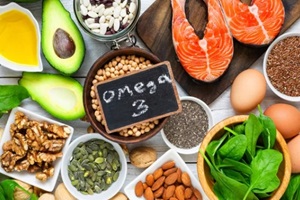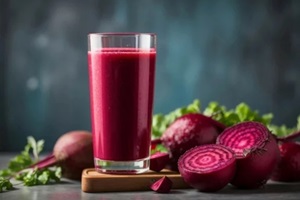 High blood pressure affects a significant portion of the global population. Also called hypertension, high blood pressure refers to the force of blood pushing against artery walls as it circulates through the body. Over time, high blood pressure that isn’t kept in check can lead to health issues such as heart disease, kidney disease, and stroke.
High blood pressure affects a significant portion of the global population. Also called hypertension, high blood pressure refers to the force of blood pushing against artery walls as it circulates through the body. Over time, high blood pressure that isn’t kept in check can lead to health issues such as heart disease, kidney disease, and stroke.
Medication is often prescribed to help control high blood pressure, but lifestyle changes such as eating well, exercising, managing stress, and taking natural supplements also play an important role in blood pressure management.
What Natural Supplements May Help With Blood Pressure?
Certain vitamins, minerals, herbs, and other natural compounds may help support healthy blood pressure levels. While no supplement can cure high blood pressure on its own, adding some of these to your self-care routine may provide additional benefits when combined with medication and lifestyle changes.
Magnesium
Magnesium may help regulate blood pressure, as it plays a role in relaxing blood vessels by enabling calcium and potassium to flow across cell membranes. It also seems to affect nitric oxide production, an essential signaling molecule for healthy blood pressure through artery dilation.
Studies show that daily doses of approximately 500 milligrams could lower high systolic and diastolic pressure over time. You can get magnesium from various foods, including dark leafy greens, various nuts, beans, seeds, and whole grains. However, taking supplements is also a viable alternative.
Potassium
As an essential mineral, potassium may help balance fluid levels in the body and enable nutrients to enter cells. It also allows the kidneys to eliminate waste. This intricate balance may influence blood pressure management.
When deficient in potassium, the body struggles to remove excess sodium, which may cause vessels to narrow and blood pressure to rise. Supplementing with potassium daily may help relax blood vessels and lower high readings.
If you have kidney disease, you might have to avoid potassium supplements to prevent toxicity — but seek medical advice to be certain. You can turn to potassium-rich foods such as fruits, vegetables, beans, and lentils, as they can provide what’s needed for most adults.
Omega-3 Fatty Acids
 Omega-3s abound in fatty fish such as salmon and provide anti-inflammatory effects that may inhibit plaque buildup in arteries, enable blood vessels to expand and relax, and support healthy cholesterol levels.
Omega-3s abound in fatty fish such as salmon and provide anti-inflammatory effects that may inhibit plaque buildup in arteries, enable blood vessels to expand and relax, and support healthy cholesterol levels.
Research suggests that getting enough omega-3s from seafood or supplements such as fish oil may help reduce high systolic and diastolic numbers in those with hypertension.
Coenzyme Q10
This powerful antioxidant helps generate energy production in cells, thereby supporting heart health and vascular function. Studies show daily doses from 100 to 200 milligrams per day may potentially lower systolic pressure, though the effects on diastolic pressure were minimal. Always check with a doctor before starting CoQ10 due to possible interactions with other medications.
Vitamin C
Vitamin C acts as an antioxidant to preserve nitric oxide supplies in blood vessels, which helps encourage widening and blood flow. Research suggests a vitamin C deficiency may be linked to a higher chance of hypertension.
In terms of supplementation, the results aren’t clear, though some studies found that taking between 300 and 1,000 mg of vitamin C reduced blood pressure levels in people with hypertension. You can also get vitamin C from various fruits and veggies, such as citrus fruits, tomatoes, broccoli, and red and green peppers.
Garlic
This aromatic veggie contains allicin, a compound that may promote vasodilation and reduce blood pressure. In fact, according to some research, garlic supplements could be as effective as traditional hypertension medication in blood pressure management without the unpleasant side effects.
According to one review of various trials, garlic supplements might reduce systolic pressure by 6.7 mmHg and diastolic by 4.8 mmHg. Other reviews have found that it may reduce blood pressure by anywhere from 2.5 to 11.2 mmHg after taking between 600 and 2,400 mg of garlic powder daily for at least 8 weeks and up to 24 weeks.
Beetroot Juice
 The rich nitrate content of beetroots helps with the production of nitric oxide. The body produces nitric oxide naturally, and it functions as a blood vessel relaxant, which helps lower blood pressure.
The rich nitrate content of beetroots helps with the production of nitric oxide. The body produces nitric oxide naturally, and it functions as a blood vessel relaxant, which helps lower blood pressure.
Since beets may promote nitric oxide production, they may also help lower high blood pressure. Studies indicate that drinking 70 to 250 milliliters daily may significantly reduce systolic and diastolic numbers within 60 days.
Hibiscus Tea
Studies show hibiscus tea and supplements may improve cholesterol levels and lower high systolic and diastolic blood pressure. One review of multiple studies discovered that hibiscus tea lowered participants’ systolic pressure by 7.58 mmHg and diastolic by 3.53 mmHg.
However, hibiscus tea is not the best option if you are already on blood pressure medications as there may be interactions, which is why it’s best to consult with your healthcare provider.
L-Arginine
This amino acid converts into nitric oxide to signal smooth muscle cells in arteries and veins to relax, which accommodates better blood flow.
Research suggests that supplementing with up to 9 grams of L-arginine per day for between 4 and 24 days may help lower blood pressure by approximately 2.6 mmHg for diastolic numbers and 6.4 mmHg for systolic. However, more investigations are needed to determine the long-term effects of L-Arginine on blood pressure management.
Are Supplements Safe?
Herbal supplements can interact with medications for high blood pressure and worsen some conditions for certain individuals. For example, licorice, ephedra, bitter orange, and yohimbine may actually raise blood pressure and prove dangerous rather than helpful for some people. Always consult your doctor before trying natural supplements for high blood pressure management.
Choose the Right Blood Pressure Management Supplements with Imperial Center Family Medicine
 While making heart-healthy lifestyle changes should take priority in any blood pressure management plan, adding certain natural supplements can provide additional support when used appropriately under medical supervision.
While making heart-healthy lifestyle changes should take priority in any blood pressure management plan, adding certain natural supplements can provide additional support when used appropriately under medical supervision.
Research shows vitamins, minerals, herbs, and other compounds such as magnesium, potassium, omega-3s, CoQ10, vitamin C, garlic, beetroot juice, hibiscus tea, and L-arginine may help lower high systolic and diastolic numbers. However, other supplements could be unsafe depending on your health status and medications.
Imperial Center Family Medicine in Durham, NC can help you by creating a holistic blood pressure management plan that includes the right supplements for your particular health situation. Contact us today at 919-873-4437 or online and let us help you get on top of your blood pressure.
